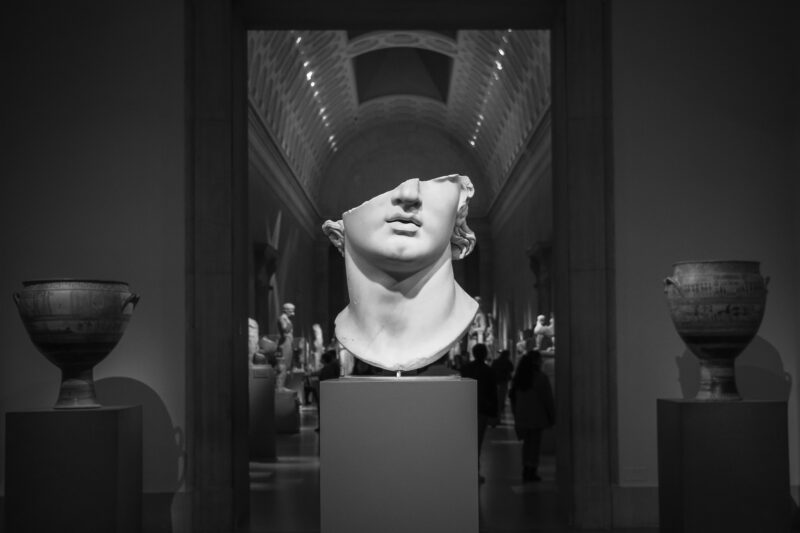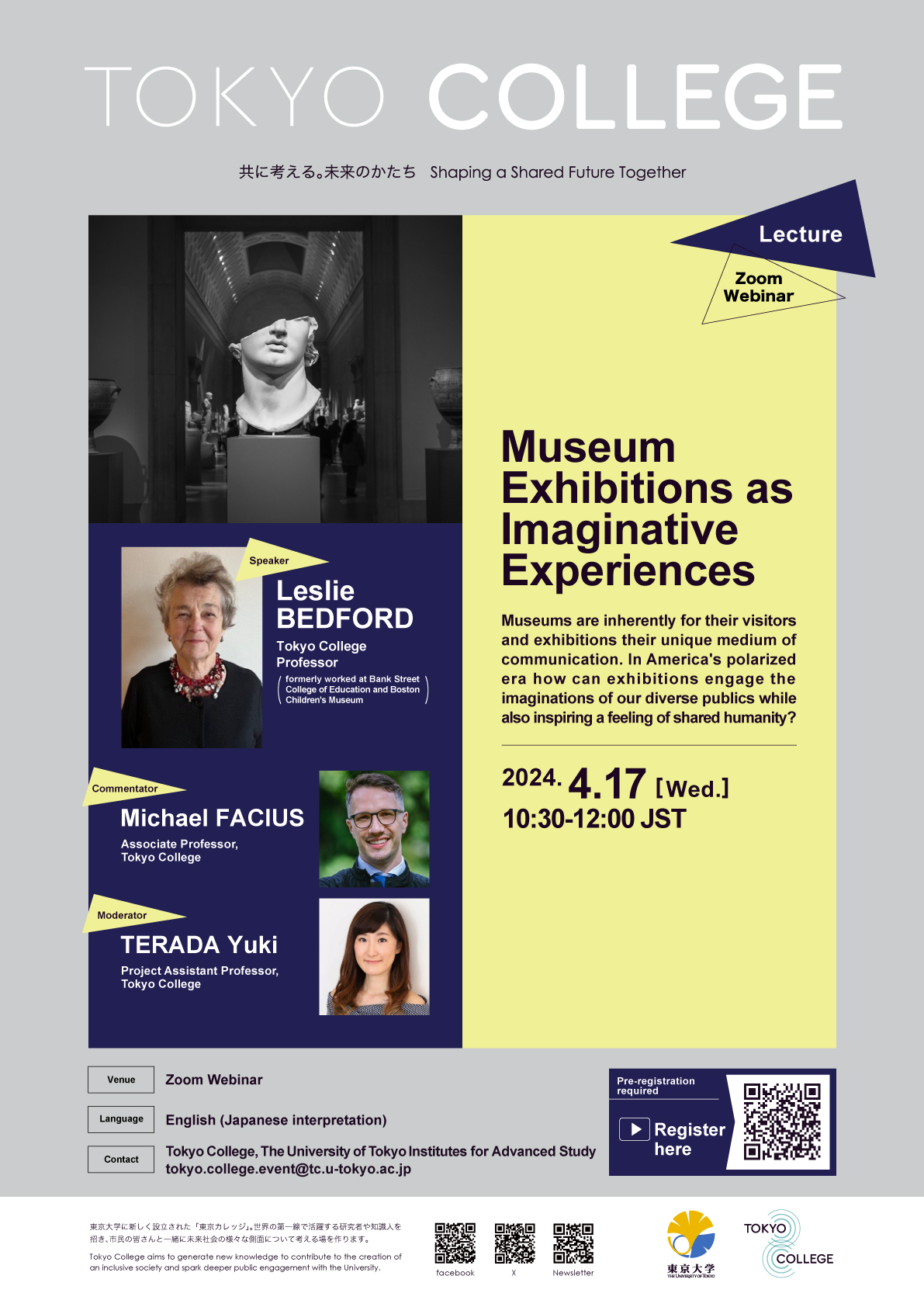Museum Exhibitions as Imaginative Experiences (Lecture by Prof. Leslie BEDFORD)

| Date(s) | Wednesday, 17 April 2024, 10:30-12:00 JST |
|---|---|
| Venue |
Zoom Webinar (Registration here) |
| Registration | Pre-registration required |
| Language | English (Japanese simultaneous translation available) |
| Abstract |
To paraphrase the late Stephen Weil, museums should not be about something but for someone. This is the foundational principle of today’s visitor-centered museum practice. A more recent perspective argues that exhibitions, while typically considered educational media, have the potential to be works of art; that is, not only in the objects they display but in the ways in which they are both created and also experienced by the visitor. This vision requires the developers, curators, designers, that is, the entire team, to respect and engage with visitors’ imaginations––somatically, emotionally, and cognitively.
One of the most effective strategies is storytelling, another is incorporating objects that through their very specificity will resonate with a diversity of people, a third is metaphor, a fourth appropriate technology. The potential for meaningful experience is enormous if lamentably not always achieved.
Leslie Bedford is a longtime museum practitioner, teacher, and scholar; her book, The Art of Museum Exhibitions: How Imagination and Story Create Aesthetic Experiences, was published in 2014. She will discuss these ideas citing examples from exhibitions around the globe. In recent years, inspired by visits to the Abu Dhabi Louvre and elsewhere she has begun to think about how museum exhibitions might contribute to a stronger sense of commonality and community, a challenge of urgency in the United States. She is looking forward to visiting museums in Japan and sharing ideas with colleagues. |
| Program |
Lecturer Leslie BEDFORD (Tokyo College Professor, The University of Tokyo. Former director of Museum Leadership Master’s Program at Bank Street College of Education, former director and curator of Comprehensive Japan Program, Boston Children’s Museum) Commentator: Michael FACIUS (Associate Professor, Tokyo College, The University of Tokyo) Moderator: TERADA Yuki (Project Assistant Professor, Tokyo College, The University of Tokyo) |
| Speaker Profile |
Leslie Bedford is a graduate of Vassar College, Harvard University Graduate School of Education and Union Institute and University where she received her PhD. Her several honors include Senior Fulbright Research Fellowships to Japan and Argentina, a Getty Museum Residential Fellowship, and the John D. Thayer III Award for Significant Contribution to the Advancement of US-Japan Friendship.
She has worked as staff and consultant to a varity of museums and led the Museum Leadership Master’s Program at Bank Street College of Education for thirteen years. In addition to her book, she has published numerous articles and given talks all over the world.
Dr. Bedford is making her l0th or more visit to Japan––she has lost count– a country she admires enormously. After the year as Fulbright Scholar in Tokyo, she returned to the Children’s Museum in Boston. As director and curator of its Comprehensive Japan Program she created a bi-cultural team, with many members in Tokyo, to develop a major and very popular exhibition. Teen Tokyo was designed to teach American young people about Japanese popular culture––including the first showings of Miyazaki anime in the States! After that exhilarating experience, she became Associate Director for Programs at the Brooklyn Historical Society and, as a consultant, developed the traveling exhibition called Choosing to Participate––that is, choosing to step outside one’s personal “circle of obligation” to help others––for the national educational organization, Facing History and Ourselves.
She lives in Manhattan’s Upper West Side with her husband, also a Tokyo Program Scholar. They are looking forward to welcoming their two adult children and four grandchildren to a place they see as a second home. |
| Organized by | Tokyo College, The University of Tokyo |
| Contact | tokyo.college.event@tc.u-tokyo.ac.jp |
















